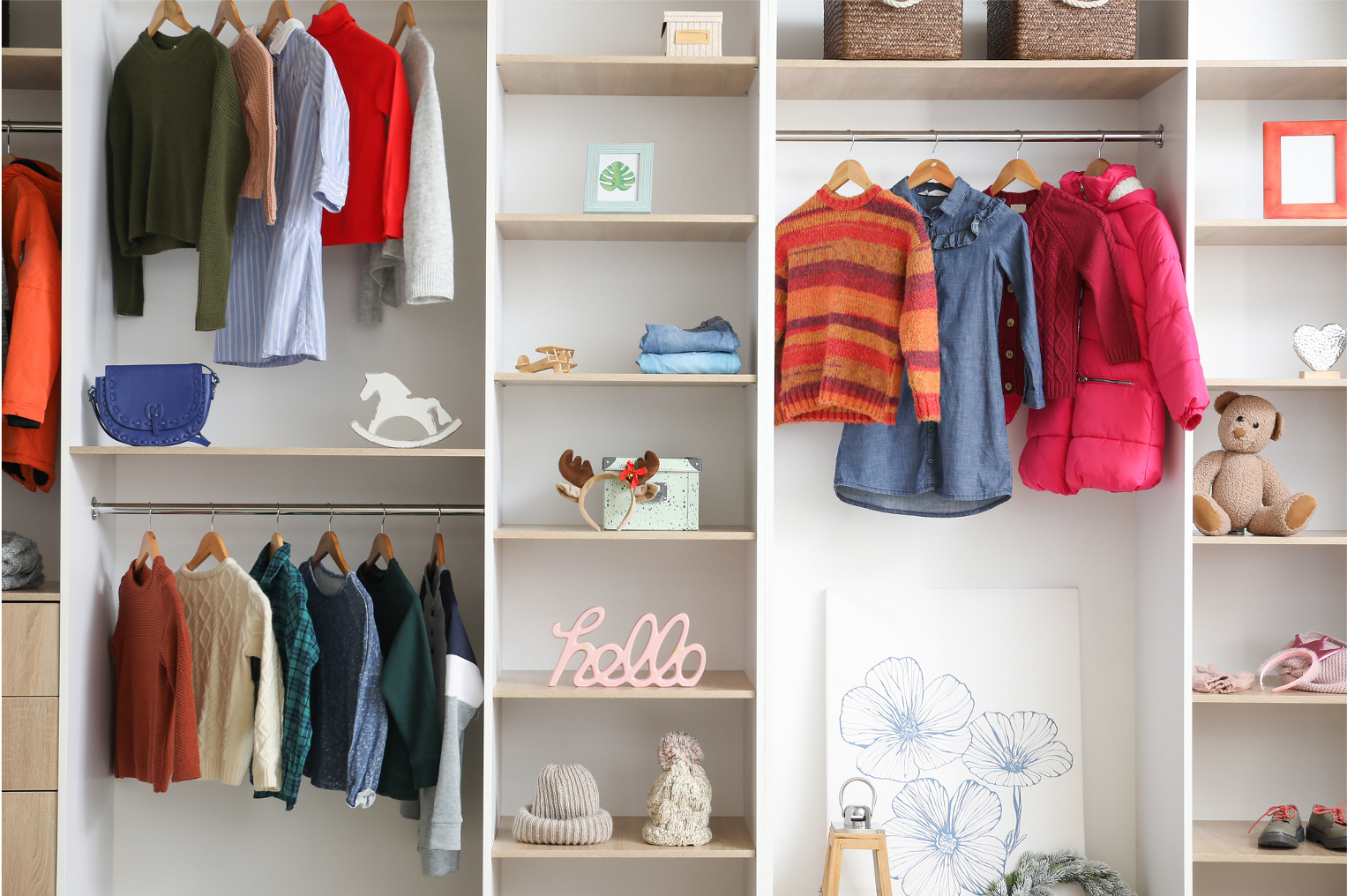OrGANIZING for KIDS
Teaching children good organizing habits from a young age sets them up for success in many aspects of life. Developing these habits early not only helps keep their spaces tidy but also teaches them responsibility, time management, and a sense of pride in their environment. Here’s how you can start instilling these valuable skills in your children today.
Make Organizing Fun
Children are more likely to engage in tasks that feel like play. Turn organizing
into a game by setting up challenges, like “How quickly can we put all the toys in the right bins?” or “Let’s see who can color-code their bookshelves the best!” Offering small rewards or praise for completing these challenges reinforces positive behavior and makes the experience enjoyable. Kids for
Create Simple, Kid-Friendly Systems The simpler the system, the easier it is for kids to follow. Use clear bins with labels (or pictures for younger children) to make it easy for them to know where things go. Having designated spots for toys, books, clothes, and school supplies gives children a sense of order and helps them learn the concept of categorization.
Involve Them in the Process
When children are involved in the organizing process, they feel a sense of
ownership over their space. Let them make decisions about where things should go and how they want to organize their belongings. This not only teaches them decision-making skills but also makes them more likely to maintain the organization because it’s “their way.”
Teach Responsibility
Give your children age-appropriate organizing tasks that they can manage on
their own. For example, a preschooler can be responsible for putting away their
toys, while an older child can handle organizing their school supplies or clothes. Teaching children to take care of their spaces instills a sense of responsibility and independence.
Be Consistent
Consistency is key when developing any habit. Set aside a regular time each day
or week for organizing. This could be a quick tidy-up session before bed or a
more thorough cleaning on the weekend. By making organizing a regular part of their routine, it becomes a natural and expected part of their daily lives.
Kids for
Lead by Example
Children learn by watching the adults in their lives. If they see you maintaining
an organized space and taking care of your belongings, they are more likely to
follow suit. Model the behaviors you want them to adopt, and involve them in
organizing tasks around the house, like sorting the mail or organizing the pantry.
Emphasize the Benefits
Help your children understand the benefits of being organized. Explain how it
saves time when looking for things, reduces stress, and creates a peaceful
environment. When they see the positive impact organizing has on their lives,
they’ll be more motivated to keep up with it.
Celebrate Progress
Recognize and celebrate the effort your children put into organizing. Whether it’s a small achievement like keeping their room tidy for a week or completing a larger project like organizing their closet, celebrating their success reinforces the habit and encourages them to keep going.
Starting good organizing habits with your children when they are young sets the foundation for a lifetime of order, responsibility, and peace. By making organizing fun, creating simple systems, involving them in the process, and leading by example, you can help your children develop skills that will benefit them throughout their lives.
At Chaos Meets Order, we believe that organizing is a skill that can be learned at any
age, and we’re here to help you and your family create spaces that bring joy and calm
into your lives. Let’s work together to build these valuable habits from the ground up!



